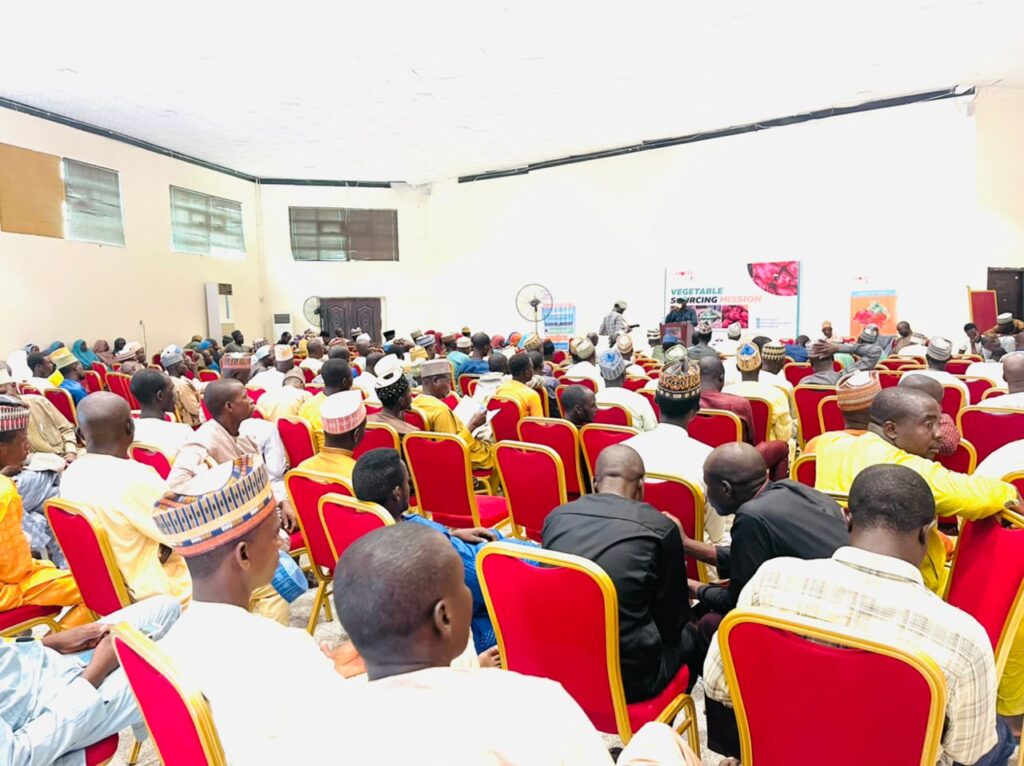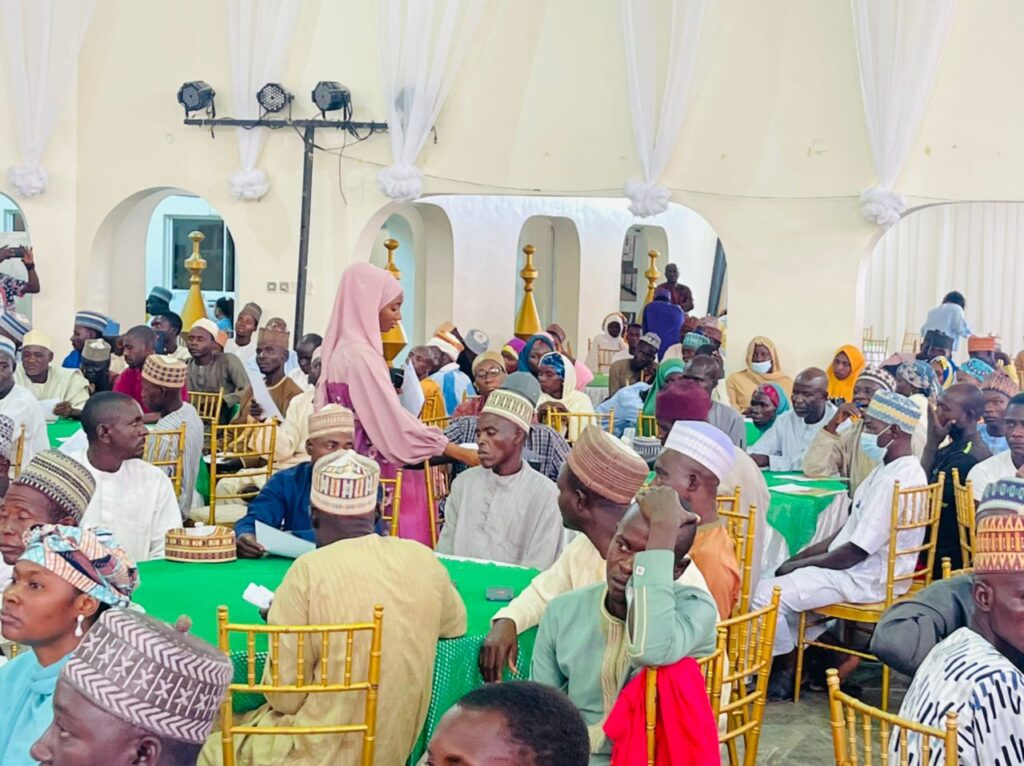from Kano and Zaria, on September 14, 2022, at Fabs Hotel, Rock Road, G.R.A Zaria, Kaduna State, where I spoke on Restructuring Fresh Produce Market: Dynamic of Tomatoes Sub-sector.
Nigeria been the largest producer of tomatoes in Africa. Yet, it reaches the level reach in which rotten tomatoes are imported from Burkina Faso between June/July every year and sold at ₦12,000 per wooden basket, which is averagely 30kg.
Currently, our big basket of 60kg and 40kg tomatoes goes for between ₦6k to ₦8k at the Mile 12 International Market, Lagos.
The same traders from Burkina Faso and neighboring countries are buying our fresh tomatoes at ₦6k and resell at ₦40k. What is wrong with us?
The northern part of Nigeria produces 90 percent of the tomatoes in Nigeria. Kano is no 1, while Zaria in Kaduna State is number two. The north start low production of tomatoes by end of September and end of November. The large production will start by December and end in mid of April of a new year.

The scarcity of tomatoes will begin by end of April toward the beginning of September, the beginning of dry season in Nigeria. During this season, out of the 12 northern states that produce tomatoes, only Jos has a favourable climatic condition for the production of tomatoes, but with good varieties that are resistant to heat and modern agricultural practice, even a state like Kano and Jigawa with temperature above 43 °С can produce tomatoes.

This point proves that efforts by Bunkasa Agritech is worth it. In June/July, which is the hottest season in the north, Bunkasa harvests tons of Tomatoes from its trained Farmers in Kano and Jigawa.

The climate in the northern part of the country is different from the climate in southern Nigeria. Also, rainfall distribution in Nigeria differs from the south to the north.
The annual rainfall is higher in the southern region than in northern Nigeria. This means that farmers in the south are meant to close the gap, but their failure to produce surplus tomatoes gives a space for the importation of tomatoes during that season.
Chairman of Mile 12 International Market, Alhaji Shehu Usman, had been making considerable effort to train some farmers in the South-west region through the Market’s Trade and Information Portal (Bunkasa Agritech), but more interventions are needed from South-west governors and agricultural organizations in that geo-political zone.

The northern farmers are crying, especially those from Kano and Zaria because they produce more than the market demands. This is where Hortinigeria is making the difference.
The HortiNigeria program (2021-2025), funded by the Embassy of the Kingdom of the Netherlands (EKN) in Nigeria, aims to facilitate the development of a sustainable and inclusive horticulture sector that contributes to food and nutrition security in Nigeria.
More business-to-business linkage has been recorded, and access to finance increased with 5,000 farmers finance to farm tomatoes on 50,000 hectares of land and supply to TomatoesJos Factory in Kaduna, where the tomatoes will be converted to paste.
Our solution?
Nigeria needs more enterprise development companies, modern Solar Drying Facilities, and support exportation of tomatoes beyond West African countries through the Nigeria Export Promotion Council (NEPC), to be able to accommodate the quantity of tomatoes produce during the rainy seasons.
In order to close the seasonal gap, the Nigerian government through the Ministry of Agriculture and Rural development needs to support and encourage small farmers in the adoption of modern farming practice.
The Nigerian Seeds Promotional Council has a lot to do, because most of the heat-resistance seeds in Nigeria are fake.
The Central Bank of Nigeria (CBN) through the Nirsal Microfinance Bank, and other financial institutions, need to give Plastic Crate Service providers zero interest loans, in order to purchase more plastic crates for the storage and transportation of tomatoes.
The Sourcing Mission was organized by HortiNigeria.





